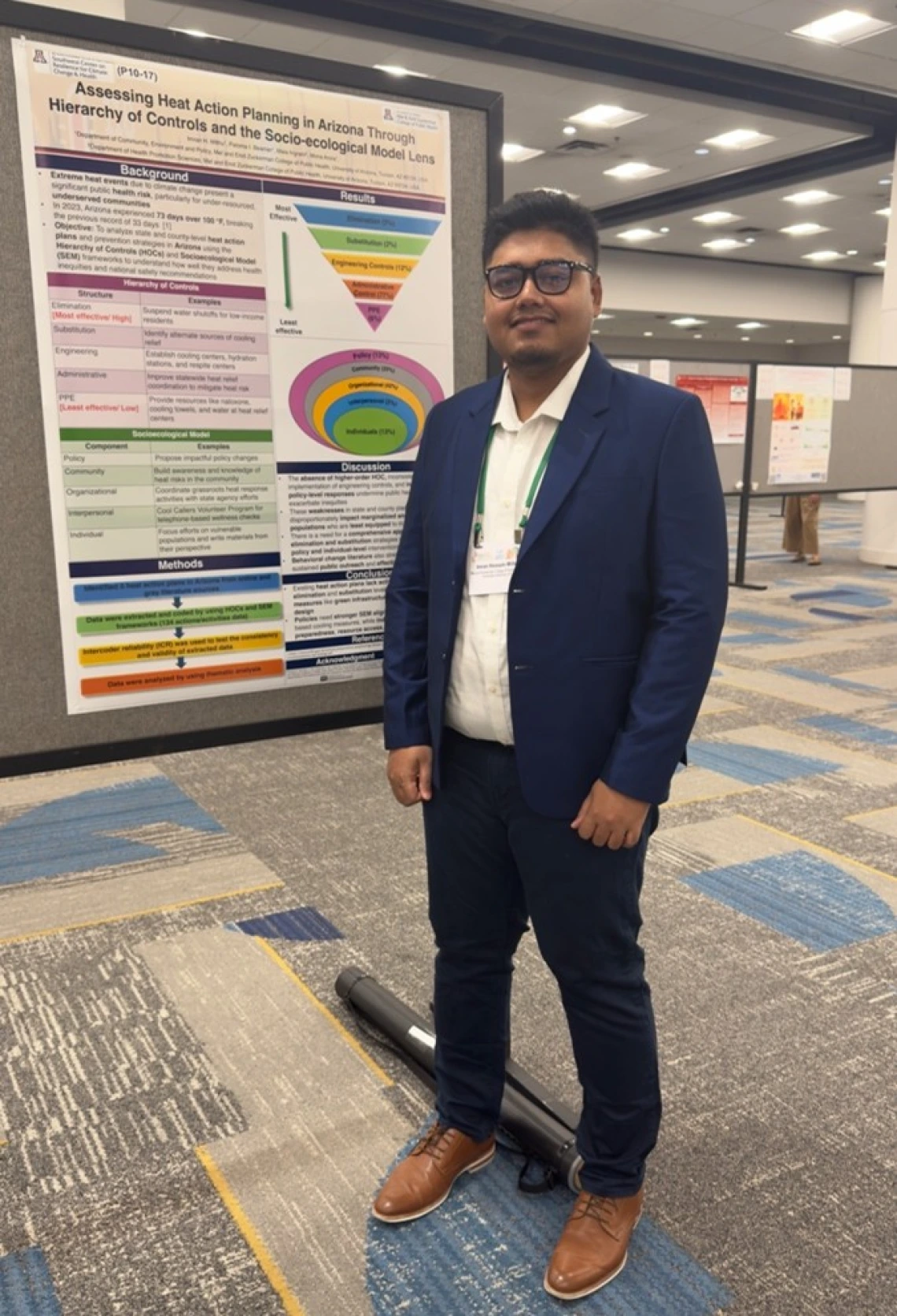Expanding Horizons: Reflections from Joint 2025 ISES/ISEE Conference

Imran Mithu in front of his research poster "Assessing Heat Action Planning in Arizona through Hierarchy of Controls and the Socio-ecological Model Lens" at the 2025 ISES/ISEE Conference.
Tina Fengesi-Johnson
Attending the joint International Society of Exposure Science (ISES) and International Society for Environmental Epidemiology (ISEE) Conference, August 17-20, 2025, in Atlanta was a defining experience in my early research career. As a travel grant recipient, I had the privilege of presenting my work analyzing heat action plans through the Hierarchy of Control and the Socioecological Model. It was rewarding to see strong interest in this area, reflecting the growing recognition of extreme heat as a pressing global health challenge.
Engaging with researchers from around the world, I received valuable feedback that both validated and expanded my perspectives. The discussions highlighted the importance of interdisciplinary frameworks to address extreme heat and its wide-ranging impacts. Beyond presenting, I had the honor of co-chairing a session with Dr. Ana Rule, current ISES President. This opportunity not only deepened my understanding of scientific leadership but also allowed me to benefit from Dr. Rule’s thoughtful advice on shaping future research endeavors.
Equally meaningful was the chance to connect with like-minded scholars dedicated to environmental health. Informal conversations and networking sessions fostered a sense of community, offering insights into diverse approaches while opening doors to potential collaborations. For me, this conference underscored the value of shared knowledge and mentorship in building a sustainable research path.
Overall, ISES–ISEE 2025 was both inspiring and empowering. It strengthened my commitment to advancing research on extreme heat and affirmed the importance of global collaboration in addressing environmental health challenges.

